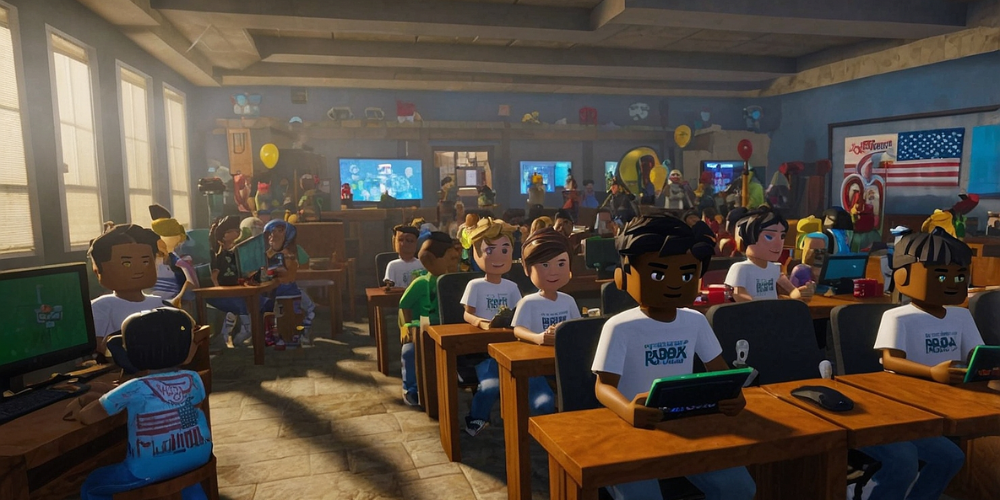
With the increasing integration of digital platforms in everyday life, innovative methods are being explored to engage younger audiences in political discourse. A recent campaign on Roblox, a massively popular online gaming platform, aims to familiarize young gamers with participatory democracy. By offering rewards for interacting with the U.S. election process, this initiative seeks to inspire interest and involvement from an early age, potentially reshaping how future citizens engage with politics.
The campaign strategically taps into the immersive nature of Roblox, where users create and interact within virtual worlds. By embedding political themes and interactive experiences related to the electoral process, it cleverly educates players. This method presents politics not as a distant and tedious subject, but as an approachable and even enjoyable activity. Given that millions of children and adolescents log into Roblox daily, the potential reach and impact of this strategy are substantial.
The implications of gamifying political processes extend beyond American borders. As young users worldwide engage with U.S. election-themed content on Roblox, a sort of global awareness is fostered. Such exposure encourages knowledge about different political systems and processes, nurturing a generation that values democratic engagement. This experiment reflects something more significant in global politics—how digital platforms are erasing borders in civic education.
Critics might worry about the effectiveness and ethics of using gaming platforms as a medium for political engagement. Concerns about superficial comprehension of democratic processes or the potential biases in represented information are prevalent. However, proponents argue that any engagement is better than disengagement. Given the challenges in reaching younger audiences with traditional methods, these novel approaches could spark curiosity and critical thinking about civic responsibilities.
In conclusion, the intersection of gaming and politics exemplified by the Roblox campaign unveils a new frontier for civic engagement. This groundbreaking initiative not only addresses challenges in political education among youth but also holds the promise of fostering informed future voters. As digital landscapes evolve, such creative approaches could redefine participation and understanding in political spheres globally, offering fresh insights into how we might shape democracy for upcoming generations.